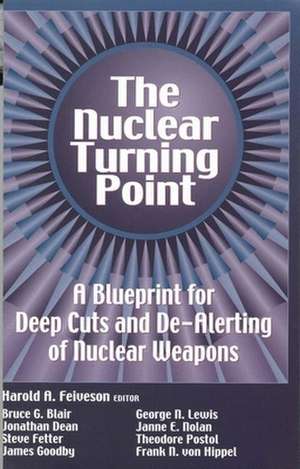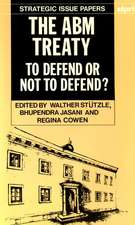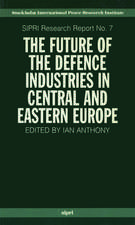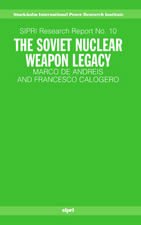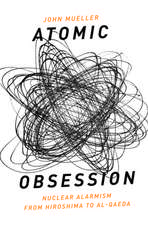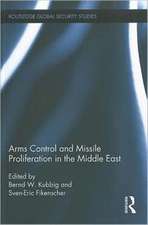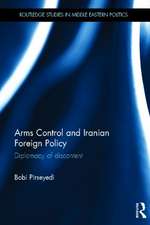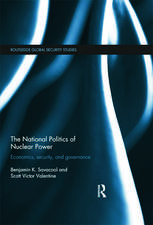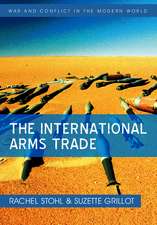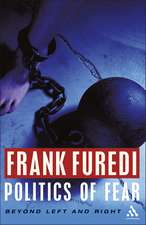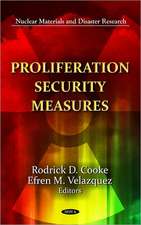The Nuclear Turning Point: A Blueprint for Deep Cuts and De-Alerting of Nuclear Weapons
Editat de Harold A. Feivesonen Limba Engleză Paperback – iun 1999
Despite the ongoing drawdown of strategic forces under the terms of START, both the United States and Russia maintain large arsenals of nuclear weapons poised for immediate launch. Under the most optimistic current scenarios, these arsenals will remain very large and launch-ready for more than a decade. This book, by a distinguished group of coauthors, critically evaluates the current policy of retaining and operating large nuclear arsenals. It reviews U.S. nuclear doctrine and strategy, and the role of nuclear weapons in deterring aggression by former Cold War adversaries and other countries with weapons of mass destruction. The risks of inadvertent as well as deliberate nuclear attack are assessed. The authors argue that small arsenals (low hundreds) on low alert satisfy all justifiable requirements for nuclear weapons. They present a blueprint for making deep cuts in U.S. and Russian deployments, and for lowering their alert level. They explain the implications of shifting to small arsenals for further constraining anti-ballistic missile defenses, strengthening verification, and capping or reducing the nuclear arsenals of China, France, and Britain as well as the threshold nuclear states. The political challenges and opportunities, both domestic and international, for achieving deep reductions in the size and readiness of nuclear forces are analyzed by the authors and by distinguished experts from other countries. The coauthors are Bruce Blair, Jonathan Dean, James Goodby, Steve Fetter, Hal Feiveson, George Lewis, Janne Nolan, Theodore Postol, and Frank von Hippel. An appendix with international perspectives by Li Bin (China), Alexei Arbatov (Russia), Therese Delpech (France), Pervez Hoodbhoy (Pakistan), Shai Feldman (Israel), Harald Mueller (Germany), and Zia Mian and M.V. Ramana (South Asia).
Preț: 240.17 lei
Nou
Puncte Express: 360
Preț estimativ în valută:
45.95€ • 47.99$ • 37.95£
45.95€ • 47.99$ • 37.95£
Carte tipărită la comandă
Livrare economică 15-29 aprilie
Preluare comenzi: 021 569.72.76
Specificații
ISBN-13: 9780815709534
ISBN-10: 0815709536
Pagini: 402
Ilustrații: 1 Illustrations
Dimensiuni: 152 x 229 x 31 mm
Greutate: 0.62 kg
Editura: Brookings Institution Press
Colecția Brookings Institution Press
ISBN-10: 0815709536
Pagini: 402
Ilustrații: 1 Illustrations
Dimensiuni: 152 x 229 x 31 mm
Greutate: 0.62 kg
Editura: Brookings Institution Press
Colecția Brookings Institution Press
Notă biografică
Harold A. Feiveson is a senior research scientist at the Center for Energy and Environmental Studies at Princeton University.
Descriere
Despite the ongoing drawdown of strategic forces under the terms of START, both the United States and Russia maintain large arsenals of nuclear weapons poised for immediate launch. Under the most optimistic current scenarios, these arsenals will remain very large and launch-ready for more than a decade. This book, by a distinguished group of coauthors, critically evaluates the current policy of retaining and operating large nuclear arsenals. It reviews U.S. nuclear doctrine and strategy, and the role of nuclear weapons in deterring aggression by former Cold War adversaries and other countries with weapons of mass destruction. The risks of inadvertent as well as deliberate nuclear attack are assessed. The authors argue that small arsenals (low hundreds) on low alert satisfy all justifiable requirements for nuclear weapons. They present a blueprint for making deep cuts in U.S. and Russian deployments, and for lowering their alert level. They explain the implications of shifting to small arsenals for further constraining anti-ballistic missile defenses, strengthening verification, and capping or reducing the nuclear arsenals of China, France, and Britain as well as the threshold nuclear states. The political challenges and opportunities, both domestic and international, for achieving deep reductions in the size and readiness of nuclear forces are analyzed by the authors and by distinguished experts from other countries. The coauthors are Bruce Blair, Jonathan Dean, James Goodby, Steve Fetter, Hal Feiveson, George Lewis, Janne Nolan, Theodore Postol, and Frank von Hippel. An appendix with international perspectives by Li Bin (China), Alexei Arbatov (Russia), Therese Delpech (France), Pervez Hoodbhoy (Pakistan), Shai Feldman (Israel), Harald Mueller (Germany), and Zia Mian and M.V. Ramana (South Asia).
